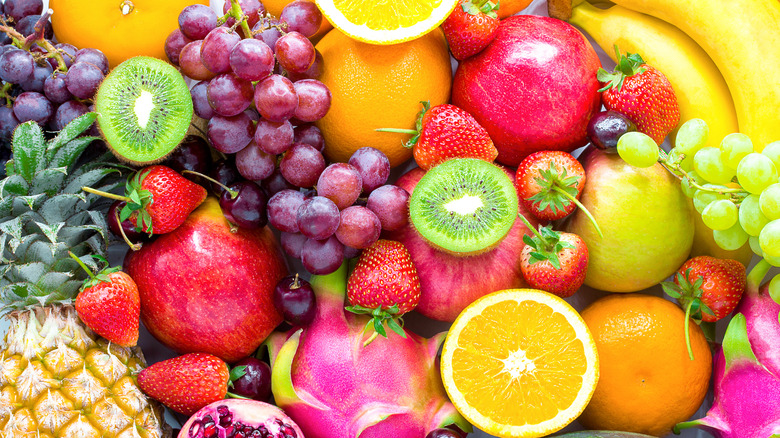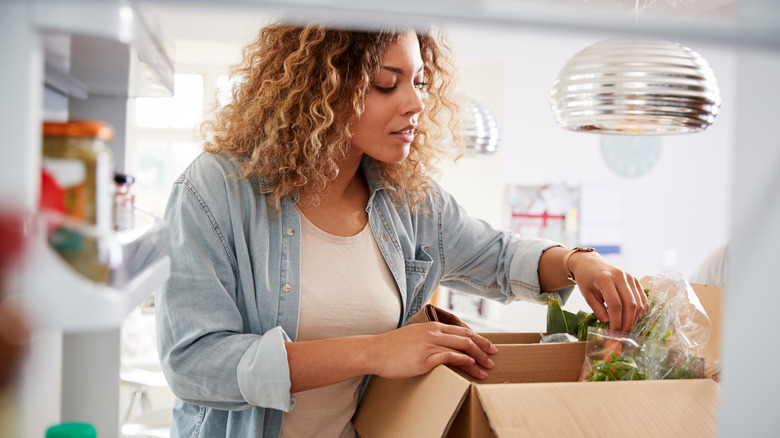The Big Mistakes You're Making When Storing Produce
Storing your fruits and veggies the wrong way means you're wasting food and wasting money. But what's the right way to store things? What goes on the counter and what needs to be refrigerated? It's easy to assume that everything fresh should be refrigerated, but that's wrong. And refrigerating can even be potentially dangerous.
Keep potatoes out of the fridge, as the cold temperature will increase the sugar content, and, according to the FDA, then when you cook those refrigerated potatoes, it can result in a high level of the chemical acrylamide, which is a carcinogen. And if you freeze raw potatoes, they'll end up mushy; instead, store at room temperature if you'll eat them in a week or so, and if you want to store them longer, 43 to 50 degrees Fahrenheit — like in a cool basement — is ideal (from Healthline).
As for tomatoes, while not dangerous, if you put ripening tomatoes in the refrigerator, the cold will result in mealy and less flavorful tomatoes (from The Spruce Eats). If you're waiting for your tomatoes to ripen, keep them at room temperature. Once ripe, go ahead and eat them! Then, and only then, if you can't finish up your ripened tomatoes, you can put them in the fridge (via Serious Eats).
A lot of produce needs to ripen on the counter
Tomatoes are just one item that does best on the counter until ripe and then in the refrigerator after that. If you buy any of these before they're ripe, let them ripen at room temperature for the best taste: avocados, stone fruits, melons, bananas, and pears (via Save the Food). Once ripe, put those in the low humidity drawer to keep them from rotting as quickly (from Cooking Light).
And you should be paying attention to your high and low humidity crisper drawers in the refrigerator — high humidity is ideal for anything that might wilt while low humidity is great for anything that might rot (from Taste of Home). Veggies like cauliflower, carrots, salad greens, are best in breathable bags in the high humidity drawer (via Save the Food).
Another common mistake may be not un-packaging your items. If you bring home a plastic bag full of onions or garlic, for example, and you keep them in that bag, they'll end up going bad. Keep uncut onions and garlic stored in a cool spot — not the fridge — or at room temperature if you'll be using them within a week (from The Spruce Eats). But don't keep your onions next to your potatoes, since onions release ethylene gas that will cause potatoes to spoil more quickly (from FruitsAndVeggies.org). Take the time to put your produce in the right place, and it'll last longer.

